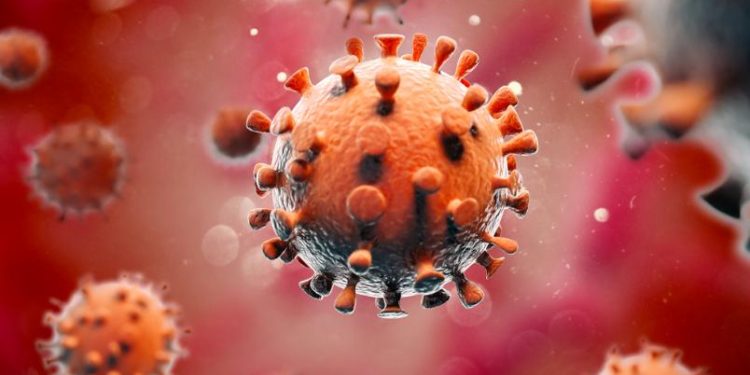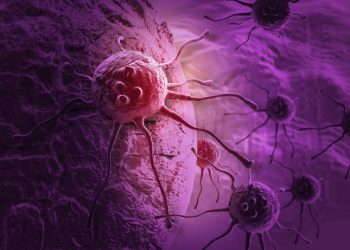Often, people with colorectal cancer don’t have any symptoms at first. This can make the disease hard to diagnose.
Yale Medicine surgeons who treat colorectal cancer are noticing an increase in young adults with the disease. They’re encouraging young people to talk with their doctors about their colon health.
Cells lining the colon and rectum are always growing, dividing and dying. But cancerous cells may keep growing and dividing even after they should die.
Pain
All cells in our body are constantly growing, dividing and dying. When cancer forms, it’s when healthy cells become abnormal and grow out of control. These cells may begin in the colon or rectal area and spread to other areas of the body. This can cause pain, bloating, weight loss and diarrhea.
Some people with colorectal cancer may not experience any symptoms or have mild ones that go away on their own. This is because many of the symptoms are similar to those caused by other conditions, like infections, hemorrhoids or irritable bowel syndrome. But if you’re experiencing any of these symptoms that persist, it’s important to talk to your doctor.
A test called a colonoscopy is used to check for tumors and other signs of colon cancer. During this procedure, a doctor inserts a long, thin tube with a camera into the colon and rectum to look for changes. You may receive a laxative or be given a sedative before the procedure to empty your large intestine. If your doctor finds a tumor, they can often remove it with surgery or a different type of treatment such as radiation therapy or chemotherapy.
Abdominal Discomfort
Many things can cause pain or a feeling of abdominal fullness in the lower abdomen. This includes infection, inflammation of the bowel (irritable bowel syndrome or colitis) and problems with your stomach muscles. Your doctor will ask about your symptoms and do a physical exam. If the pain doesn’t have a clear cause, he or she may order more tests.
A test called a colonoscopy is the best way to find out if you have colorectal cancer. During this procedure, your doctor inserts a long, thin tube called a colonoscope into the large intestine and rectum. The scope has a light and camera that let your doctor see any tumors. Your doctor can also remove polyps, if needed, and take a tissue sample (biopsy) for testing. You’ll need to drink a laxative liquid before the procedure.
If the colon cancer is in an early stage, it hasn’t spread to nearby tissues or lymph nodes. This is stage 0. If the cancer has spread to the bowel walls, it’s in stage 1. In stage 2, the cancer has reached the next layer of tissue and may have reached one or more lymph nodes.
Loss of Appetite
Cancer happens when cells grow and divide uncontrollably. Cells lining the colon and rectum are supposed to stop growing and dividing as they get older, so they can die naturally and prevent new tissue from developing. When they don’t, they can become cancerous and grow into other parts of the body.
The large intestine (colon) and the rectum are parts of the digestive system. The colon absorbs water and nutrients from food, then passes waste (stool or poop) to the rectum, where it exits the body at the anus. Cancers that begin in the colon or rectum are called colorectal cancer.
A loss of appetite can be a sign of cancer. It also may be a side effect of chemotherapy or radiation treatments. It’s important to talk to your doctor about any changes in your eating habits.
If you’re concerned about your risk of colorectal cancer, talk to your doctor about screening. Regular tests can find precancerous polyps that aren’t cancerous and help prevent cancer from spreading. Nine out of 10 people whose colon cancer is found and treated early survive. But it’s still a leading cause of cancer death in the United States. To reduce the risk of colorectal cancer, schedule a stool test every 2 years and a colonoscopy or sigmoidoscopy every 10 years.
Loss of Weight
Colorectal cancer begins in the cells of the colon and/or rectum, part of the large intestine and digestive system. When cancerous cells grow, they can destroy tissue in the colon or rectum and can spread to other parts of the body.
Symptoms of colon cancer include blood in the stool, unintentional weight loss and either persistent constipation or diarrhea. They can be similar to symptoms of other conditions, like hemorrhoids or irritable bowel syndrome, so it’s important to see your doctor when you notice them.
In one study, people with early-onset colorectal cancer had one or more of four signs — abdominal pain, rectal bleeding, iron deficiency anemia and unexplained weight loss — over 3 months to 2 years before they were diagnosed with the disease. These signs were more common in the group with colon cancer than in those without it.
Colon cancer can happen at any age. But it typically affects older adults. It’s the third most common cancer in the United States and is the second leading cause of cancer death, according to the American Cancer Society (ACS). The ACS recommends regular screening for colorectal cancer.
Abdominal Swelling
Symptoms of colon cancer can often be mistaken for those of more common medical conditions, such as hemorrhoids and irritable bowel syndrome. This can delay a diagnosis, especially in people who don’t have regular screenings or who are too young for the recommended screening age.
The large intestine (colon) and rectum (the end of the large intestine) collect waste from the rest of the digestive system and pass it into the anus for elimination. Cancer that starts in the colon or rectum can cause abdominal swelling.
Abdominal swelling may also indicate that the cancer has spread to nearby lymph nodes. Cancer that spreads to the lymph nodes in the pelvic area is more likely to be a stage III tumor, which is less treatable than a stage II or stage I tumor.
Some people with colorectal cancer may develop anemia, which is a blood disorder caused by loss of red blood cells. Anemia can be a sign of colon or rectal cancer, but it can also be caused by many other conditions, including chronic diarrhea and certain medical treatments, such as chemotherapy and inflammatory bowel diseases like Crohn’s disease and ulcerative colitis.
Changes in Bowel Movements
Your stool can give clues to what’s going on inside your digestive tract. For example, colorectal cancer that has spread through the colon can cause blood to enter the feces. This can make your poop look black or tarry in color.
Stool changes may also be signs of a blockage in the lower colon or rectum. This is why it’s important to get regular screenings, including a colonoscopy, and to see your doctor right away if you notice any unusual symptoms.
Even mild blood in the stool should not be ignored. Rectal bleeding, especially if it’s bright red and continues to happen after you have a bowel movement, could indicate that pre-cancerous polyps are developing into cancer.
Bleeding in the colon or rectum can also change your stool’s consistency, making it thin and ribbon-like or a pebble texture. It can also change the way your bowel moves, with constipation or diarrhea.
Blood in the Bowel or Rectal Stool
Bleeding in the stool is often a sign of cancer, although it may also be from things like hemorrhoids or anal fissures. The color of the blood varies. It can be bright red, a condition called hematochezia. Or it can be dark red or black and make your stools look more like tar than a normal stool.
When a bleed is from higher up in the colon, it doesn’t look bright red. It tends to go darker as it mixes with the chemicals in your digestive tract. Hemorrhoids are one of the most common causes of this type of bleeding, but you should always get it checked out.
Some cancers that start in the rectum can also cause rectal bleeding, especially if they grow into the rectum wall. It’s important not to ignore this symptom, particularly in young adults because new cases of rectal cancer are surging among people under 45.
Screening tests can catch many of these cancers before they cause symptoms. You should talk to your doctor about when you should start getting screening tests and how often. A health care provider can feel your abdomen for a mass and order tests, including blood work and a CT scan or an MRI of the abdomen and pelvic area.









